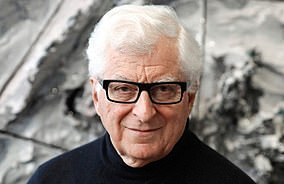Billionaires battle for the waves: The world’s richest men spend money in a bid to win the prestigious America’s Cup
Sir Ben Ainslie, the most decorated Olympic sailor of all time, will battle to make history today in Barcelona when he takes on experienced Italian captain Max Sirena.
The first to win seven races in the next ten days will earn the right to challenge reigning champions New Zealand for the America’s Cup, the most prestigious prize in sailing and the oldest international trophy in the sport.
It is 173 years since Queen Victoria watched the New York Yacht Club upset the natural order of things by beating her Royal Yacht Squadron in a race around the Isle of Wight on August 22, 1851.
Since then, the Americans have won the ‘Auld Mug’ 30 times, while New Zealand has won it four times, Switzerland twice and Australia once.
Despite 23 attempts, Great Britain has yet to win the trophy, a blemish that has been a thorn in the side of four-time Olympic gold medallist Ainslie for years.
Prestige: The America’s Cup held in Barcelona is not just a race between sailors, it is also a battle of egos between some of the richest men on earth
Should the 47-year-old and his team at Ineos Britannia win, his reputation as the best competitive sailor this country has ever produced will certainly be secured.
It would also be a stunning victory for the sports-mad billionaire bankrolling the British challenge: Sir Jim Ratcliffe, founder of global chemicals giant Ineos and co-owner of Manchester United.
Because the America’s Cup is also a battle of egos between some of the richest men on earth.
Of the six teams in Barcelona, all are backed by wealthy and highly competitive benefactors.
Among them are Italian-Swiss pharmaceutical executive Ernesto Bertarelli of Switzerland’s Alinghi Red Bull Racing and American retail magnate Doug DeVos of NYYC American Magic.
The race series between the Brits and the Italians that starts today is no exception. Two magnates are going head to head.
Ratcliffe, 71, is a self-made man who grew up in social housing in Lancashire and made his estimated £23.5 billion fortune in chemicals.
He is an avid adventurer and marathon runner and divides his time between his homes in Hampshire and Monaco.
In 2020, he changed his tax status to the principality on the French Riviera, saving an estimated £4 billion.
The big money behind Sirena and his team at Luna Rossa Prada Pirelli comes from Patrizio Bertelli, the boss of the Prada Group, who is married to a member of the glamorous Italian fashion dynasty.
Bertelli, a sailing enthusiast, founded the Italian team Luna Rossa almost 30 years ago and has already financed four failed attempts to participate in the America’s Cup.
Like any self-respecting billionaire, Ratcliffe has a very big boat: his 256-foot, £130 million mega-yacht, the Hampshire II, complete with helipad and beach club, is moored at the Ineos team base in Barcelona.
But he is not a sailing enthusiast and only became involved in sailing after meeting Ainslie for a drink in 2018, a few months after Ainslie’s British team had been eliminated from the America’s Cup in Bermuda.
Ratcliffe later joked that this was the “most expensive gin and tonic in history” as four weeks later he signed a £110 million deal to fund the British challenge in Auckland in 2021.
His second attempt this year is unlikely to have been any cheaper. America’s Cup great Dennis Conner estimates a syndicate would need at least £150m to have a chance of winning this year.
What really appealed to Ratcliffe, he says, was the unique challenge.
Ratcliffe, who also owns British cycling team Ineos Grenadiers and a third of the Mercedes Formula One motor racing team, describes winning the America’s Cup as akin to returning the ailing Red Devils to the top of the Premier League.
Earlier this year, Ineos Group paid more than £1 billion for a 25 percent stake in Manchester United, taking control of its football operations.
Of course, sailing races and big money have always gone hand in hand.
The America’s Cup attracts top-tier sponsors, from Prada to Rolex to Louis Vuitton. The tournament is owned by LVMH, the luxury goods empire headed by one of the world’s richest men, Frenchman Bernard Arnault.
This year, the Challengers’ Cup, in which teams compete for the title of the America’s Cup, is called the Louis Vuitton Cup.
Luxury Swiss watchmaker Omega has dethroned Rolex as the event’s official timekeeper, with Italian tire maker Pirelli and airline Emirates among the other sponsors.
But long before it became a marketing dream for expensive handbags and Swiss watches, the America’s Cup was a playground for billionaires who invested vast fortunes in assembling teams, designing high-tech boats and putting together world-class crews.
The successful American teams have been supported over the years by everyone from Wall Street giant John Pierpont Morgan in the early 20th century to Oracle co-founder Larry Ellison 100 years later.
The latter is estimated to have spent around £560 million on five campaigns, two of which were successful.
The event has also proven to be a very effective way to flush good money down the drain. French magnate Baron Marcel Bich, who gave the world the Bic pen, made four failed attempts between 1970 and 1980.
Scottish tea merchant Sir Thomas Lipton was also a serial loser, making five failed attempts around the turn of the 20th century.
“The America’s Cup is a financial black hole,” said John Bertrand, 77, who led Australia II to the most famous victory in America’s Cup history 41 years ago in 1983.
He and his crew defeated the New York Yacht Club in Rhode Island in Newport, the first time in the 132 years of the competition that the Americans had been defeated, ending the longest winning streak in sports.
He told the Mail: ‘It’s all about the X factor of winning the most prestigious sporting event on earth. If you win, you can touch the flesh of any king or queen in the world.’
Over the past forty years, financing a team has become an increasingly expensive hobby as technology has become more sophisticated.
Modern yachts have been compared to Formula 1 racing cars and can reach speeds of 96 km/h.
The 75-foot carbon fiber-clad foiling monohull used this year looks very different from traditional yachts.
They have no keel and are designed to fly over the surface of the water using mechanical arms that move under or outside the boat, creating the leverage needed to remain upright.
In the UK and Ireland, anyone wishing to watch the race must do so online via YouTube, Facebook or the event’s official website.
This lack of exposure can be galling to those who spend the big bucks. Many in sailing believe the sport can learn a lot from Formula 1, which has brought the sport to a much wider audience through the hit Netflix series Drive to Survive.
If Sir Ben Ainslie’s crew achieve a historic victory next month, it may finally capture the imagination of the British public.
DIY INVESTMENT PLATFORMS

AJ-Bel

AJ-Bel
Easy investing and ready-made portfolios

Hargreaves Lansdown

Hargreaves Lansdown
Free Fund Trading and Investment Ideas

interactive investor

interactive investor
Fixed investment costs from £4.99 per month

Saxo

Saxo
Get £200 back on trading fees

Trading 212

Trading 212
Free trading and no account fees
Affiliate links: If you purchase a product, This is Money may earn a commission. These deals are chosen by our editorial team because we think they are worth highlighting. This does not affect our editorial independence.
Some links in this article may be affiliate links. If you click on them, we may earn a small commission. That helps us fund This Is Money and keep it free. We do not write articles to promote products. We do not allow commercial relationships to influence our editorial independence.


